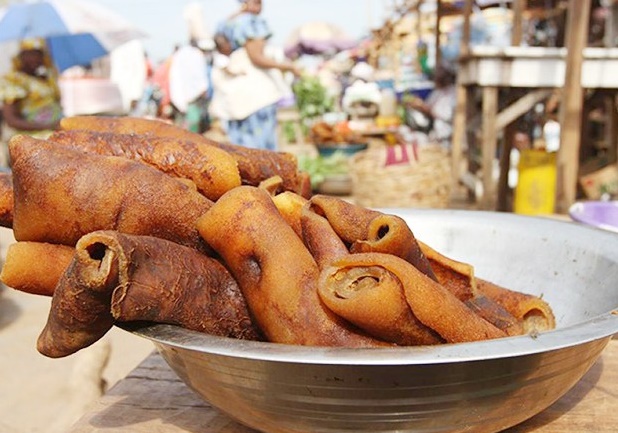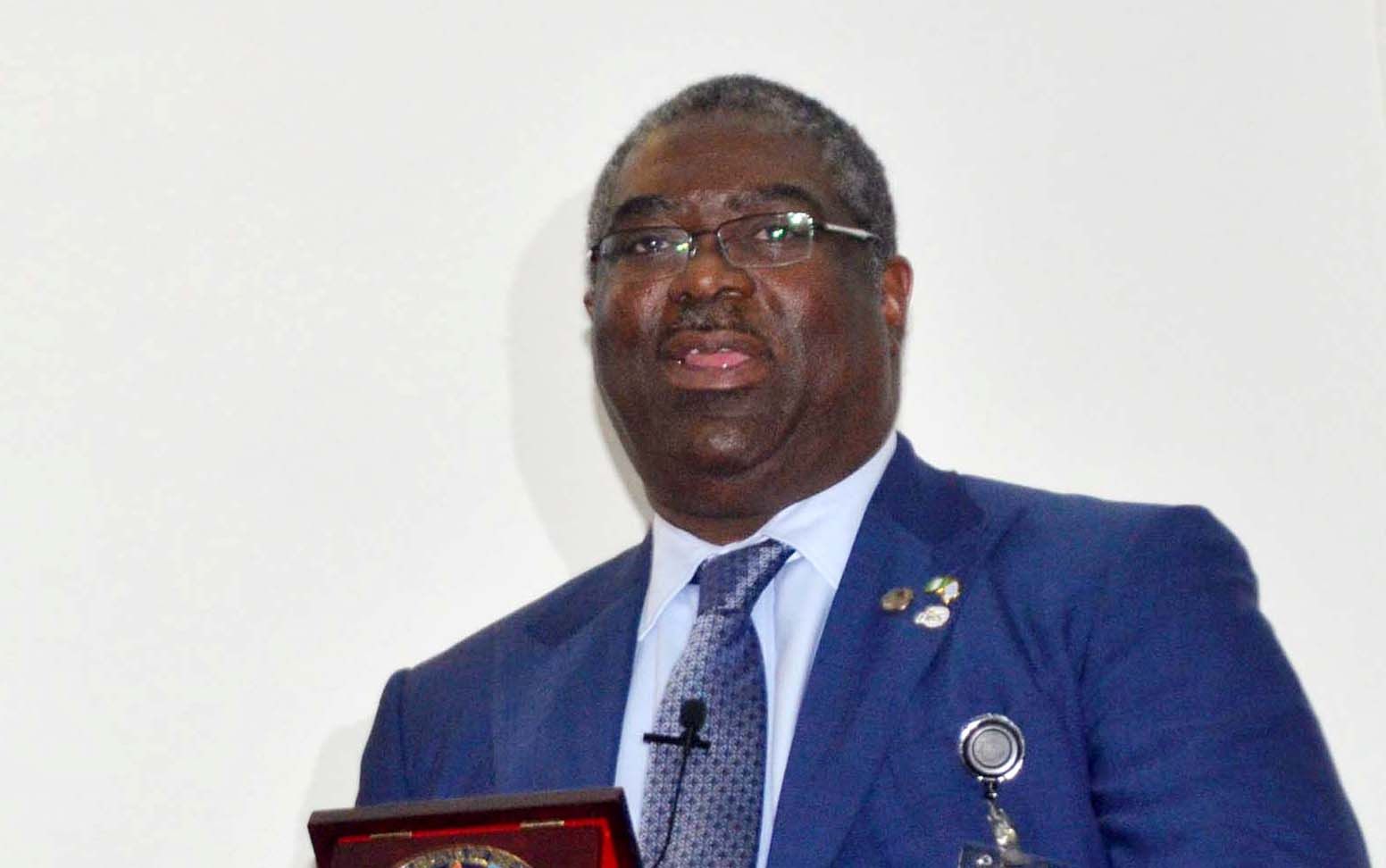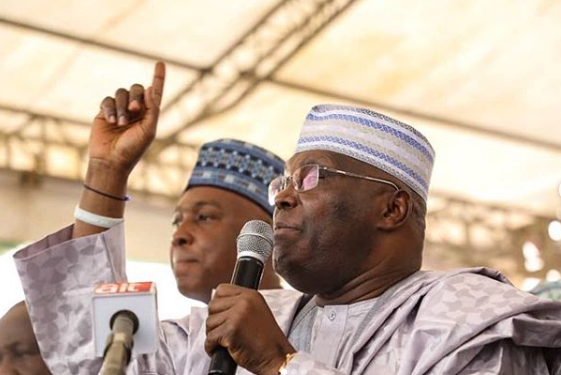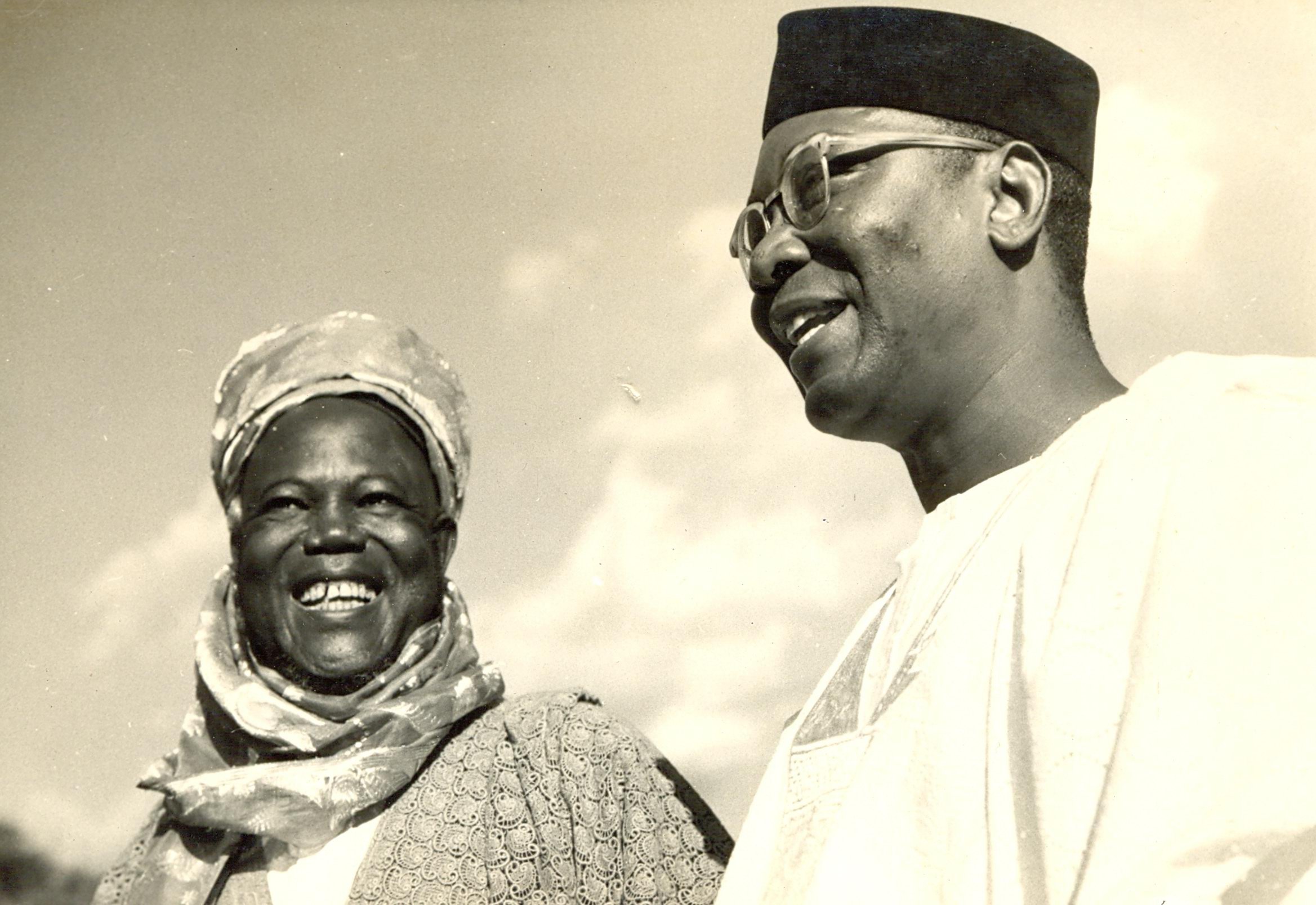Even chronic pessimists know by now that Nigeria is in a state of complete war with herself. The only difference is that, unlike other wars with known and identifiable enemies, those who roll artillery tanks against the people of Nigeria are at best unidentifiable and at worst, being shawled in ethnic, religious and political shroud.
While the two and half years Biafran War, Nigeria’s most grueling example of a needless intra-national war, cost her about 100,000 military casualties overall and between 500,000 and 2 million civilians recorded to have starved to death, not minding the 700 felled by the bullets of Murtala Muhammed soldiers after the capture of Asaba on the Niger River and the thousands killed at Abagana, Arochukwu, Oguta, Umuahia, Onne, Ikot Ekpene and many more towns, the current war in the North Eastern part of Nigeria, in the last four years, barring Nigeria’s dearth of appropriate statistics, must be favourably competing with Biafra’s. Or even more.
We have lost count of innocent soldiers and hapless civilians whose blood were shed in the last 17 years since Mohammed Yusuf formed the Boko Haram insurgency in 2002, and 2009 when its bloody campaign in the hands of the blood-thirsty Abubakar Shekau began. In the interregnum, Fulani herdsmen, a notorious band of herdsmen, mainly of the Fula ethnic group, who had killed 80 people in total in 2013 and by 2014, had murdered at least 1,229 people, entered in the fray in Nigeria. The group, according to an index report, which operates between Nigeria and parts of the Central African Republic (CAR) had killed 847 people in 2015 across five states in Nigeria in unleashed attacks on private citizens, their primary and audacious contest being for the farmlands of their victims.
Possessing same widespread and deadly disposition is the banditry which first began in Zamfara State like a joke. On almost daily basis, reportage of the hundreds that were killed in this state, which first gained global notoriety with the chopping off of the hand of a poor farmer, Jangedi, for stealing, have been on the upswing. The odious smell of carnage and banditry that emit off this state is not only eerie but fearful. It is a hotbed of killings, kidnapping and mindless banditry. With a stupendous land mass of 38,418 square kilometers, Zamfara is the seventh largest state in Nigeria. Many of its hapless communities have no single police station and those that have are bereft of weaponry. It is porous and easy prey of Mephistopheles. Fuelled by a gold mining cabal that feeds on the contiguity of North Eastern states to Nigeria’s neighbours with which it shares affinity, the war over gold mining bears easy similitude to the wars of space and resources in other climes. Father, mother and their children are killed, beheaded and set ablaze by gunmen who wield very sophisticated weaponry, the like of which are alien to our law-enforcement agencies. Only in March this year, about 30 people were reportedly killed by armed bandits who raided Kware village in Shinkafi in motorcycles, opening fire on residents and thereafter burning their homes.
Advertisement
A week before then, about 60 people were said to have been killed in a multiple raid on the herding and farming communities of Zamfara and Sokoto States. The porousness of the states and their nil-policing, have escalated counter banditry and insecurity because, in the process of embarking on self-help by the communities through the recruitment of Vigilante groups, similar senseless killings occur. These vigilante groups have been fingered to have engaged in extra-judicial, summary killings of those suspected of being bandits. A case in point was the summary execution of ten suspected bandits in the palace of an emir a few weeks back.
The banditry has stampeded its hens to come home to roost. Northern elite are feeling the scotching heat. The ones living in Abuja either don’t dare to travel home or when they do, commute by train, the huge traffic of which is said to have jerked up train fares on that route. Those who live at home, especially in states on the fringe of neighbouring countries’ borders, are said to work in the states by day and scamper to their homes in neighbouring countries by night. Those who are not rich enough to build houses in those countries rent new homes. The penal sanction from the bandits if they are fingered as audacious enough to stay home overnight is summary kidnap for huge ransom or anything of sort. Even travelling by road from the West of Nigeria to Abuja or any town in the north, which used to be enjoyable, is sauced in panoply of fear, apprehension and need for disguise as a wretched commuter. If you travel by your SUV or identified as rich, you are liable to being kidnapped and could be killed. In the last four years under the administration of Muhammadu Buhari, multiple of thousands of countrymen have been killed via banditry, herdsmen/farmers alterations and hundreds have been kidnapped.
If South Westerners thought they were immune from this raging malady, Osun State governor, Gboyega Oyetola, a few weeks ago, alerted that the bandits, said to have been smoked out of Zamfara, are already in his state. Only two days ago, the Chief of Army Staff, said they have now relocated to contiguous states in the North East. They are already thriving like ferns and moss in a plantation at the Northern part of Oyo State where they sidled in, in the guise of herders. The veracity of Oyetola’s claim would be confirmed if you needed to travel on the stretch of land between Ilesa and Ekiti State, passing through Iwaraja or anywhere around Akure, the Ondo State capital. You were travelling to Bosnia/Herzegovina of old, Syria or any other war-torn spots if you needed to go to my village, Ilu-Abo, Eleyowo or Ogbese, all on the fringe of the state capital As I write this piece right here in my Ilu-Abo village, I was said to have literally dared the dragon. You needed a travel advisory to navigate anywhere in that neighbouhood. Kidnapping is as usual as a fisherman catching shrimps on the Mahin River.
Advertisement
Nigeria is in this banditry mess due to the irresponsible and subjugating leadership of northern leaders since amalgamation. Sir Ahmadu Bello, the Sardauna of Sokoto’s alone differs. In all, the common denominator of the upswing in banditry and kidnapping has been the coming of age of the Almajirichild. Being a phenomenon that is taken wholesale from Arab as a system of al-Muhajirun, it has come to represent a system of Islamic education, notorious in northern Nigeria, where a child is thrown into the vagaries and wickedness of life to fend for himself at a tender age, supposedly in search of knowledge.
Began in a little town called Kanem-Borno and the fulfillment of elite quest for Quranic literacy, over 700 years later and with the founding of the Sokoto Caliphate, the Caliphate flowered the Almajirisystem. At inception, it was admirably run with pupils in the neighbourhood learning at the feet of aMallam, funded by parents or from sakkah, sadaggah and proceeds of farms, it soon went out of hand in the post-colony. The British invasion of area soon to become Nigeria further ruined the system as the colonialists abolished state funding of Almajiri and substituted Boko (book) for it. From then, the system worsened considerably. Flourished by the philandering of family heads who sire children in multiples, its operation can be explained in the unguarded but apposite words of Mrs. Patience Jonathan, wife of Nigeria’s ex-President, who said matter-of-factly that, “our people no dey born children troway.” Giving birth to children and literally throwing them away, a la Mrs. Jonathan, has today populated the horrible system to about 7 million almajirai today. The pattern is, a most times indigent couple give birth to multiple of children who are unleashed on the world a little off their diapers, most times taken outside their living jurisdiction and handed over to some Islamic zealot who has no funding to take care of his array of pupils. He too equally unfurls the hapless kids on society. A graduate of the system who once volunteered its modus operandi said that after the 5.am Asubaprayers, the children are set loose thereafter to go beg for early morning. They move from house to house to wake homes that early with their cries, after which they proceed on early morning begging. They are given left-over, uncooked foods and sometimes money. The Mallam collects all from them and gives pittances.
Over the years, the system has produced hardened criminals, outlaws, prostitutes, cultists, terrorists. They never knew love, honesty, tolerance and the concept of how humanity needs to be law-abiding. From their infancy, they are exposed to the harshness and brittle hands of fate, its incongruity and unfairness towards them and are thus easy recruits to subvert order and law. It is why the grown-up offspring of this callous system mature to becoming bloodthirsty hounds in whose veins blood flows sparingly. They are drafted into insurgency at the flick of a finger and are the bandits of today terrorizing Nigeria and who are no longer content with the dole outs of food left-over from society.
Ex-President Gooluck Jonathan attempted a solution to the Almajiri menace by founding what he called the Almajiri Model Education. Flagged off in Gagi, Sokoto State in 2012 where himself, thenGovernor Aliyu Wammako, the Sultan of Sokoto, Alhaji Sa’ad Abubakar III, then Governor Saidu Dakingari of Kebbi State and others were present, the northern elite and their governments soon killed the dream. President Buhari, in his four years in power, has not been quoted as saying a single word about the infernal internal child slavery system.
Advertisement
The revolt of the almajiri should ordinarily be a fitting, apposite law of Karma and equitable response from these vagrant, uncared-for children to the elite of the North and their successive governments who flourished the system in almost a century. However, the fact that the South which comparatively trains its own children, is benefitting from the borderless libidinous rascality of northern elite and their lack of foresight, makes the harvest inequitable. Nigeria is today ungovernable and all of us are reaping from these sour fruits which Southern forefathers like the Obafemi Awolowos, Nnamdi Azikiwes warned would be the outshoot of the age-long neglect of Northern kids. In few years to come, the South will equally have a full maturation of its children too. This time, it will be in the form of out-of-school children and jobless graduates roaming the streets. When the un-catered-for children of the North jam the catered-for but jobless children of the South, the clash could be akin to what Marxian theorists call the clash of thesis and antithesis. Perhaps the resultant synthesis is what some call a revolution. Which Nigeria needs very badly.
For Ayinla Omowura and Peter Tosh
Tomorrow is the 39th anniversary of the death of that highly talented Yoruba Apala music maestro and my musical idol, Eegunmongaji Ayinla Omowura, real name Waidi Yusuff Gbogbolowo. Although the anniversary of the passing of Peter MclnTosh, Jamaican rebellious Reggae musician, also my musical god in whose memory I make daily propitiations of constantly singing his song, is in September, I remembered Peter as the state of New York, a few weeks back, made a proclamation for this year’s renewal of the national observance of 4/20 in Tosh’s name.
New York had given this fitting epithet to Tosh: ““It is the privilege of this legislative body to honour Peter Tosh for his exemplary service and humanitarianism upon the illustrious occasion of the 4/20 Peter Tosh celebration. Peter Tosh’s example, as both an artiste and an activist, continues to inspire creators and idealists around the world. He was, and is, a true leader whose music and message inspire people on every continent throughout the world.”
Omowura and Tosh are united on many fronts. Both were musical prodigies, renowned for unconventional lifestyles of smoking marijuana, lived very violent lives and died in their 40s. While Omowura was assassinated at the age of 48 by his Manager, Bayewu in May, 1980, Tosh was assassinated at age 42 by Dennis Lobban, familiarly called Leppo, one of his boys who had allegedly taken a jail rap for him. Their songs are evergreen and didactic, pointing at the path to tread by generations after their demise.
Advertisement
The recognition by New York of the fight for human rights by Tosh is a fitting icing on the cake of his existence. Tosh was an iconoclast, poet and a man whose head carried a mansion-filled talent and ideas. Funnily, he was on several occasions jailed for smoking hemp (I man nah go a jail) and on an occasion after the Jamaican One Love Peace Concert of April 22, 1978, was so brutalized by police downpressor men for smoking Sensimilia that his skull was suspected to have been cracked. He was profound and a non-conformist.
After writing Peter Tosh: 30 years after the iconoclast two years ago, Simon Kolawole, The Cable Publisher and I went into a long debate on who was greater between Tosh and Bob Marley. He stuck to the latter as the greatest and I told him I migrated from the latter to the former after I discovered Peter’s undiluted inspiration and poetry. I was Marley’s fan until about two decades ago. I told Kolawole that Chris Blackwell, who split the Wailers by promoting Bob ahead of the trio that included Bunny Livingston, did so due to Bob’s mulatto skin pigmentation and him being a commodity that would be commercially viable and promotable to the West, as against either Peter or Bunny. Our argument is yet to hit a denouement.
Advertisement
Omowura on his part, though illiterate, held Abeokuta and his Mushin homes spellbound by his deep musical narrative. I am aware that Nigerian movie icon, Tunde Kelani, is trying to memorialize Omowura. I have heard some very un-academic and plebeian argument that Omowura doesn’t deserve celebration because he smoked weed and was violent. They should ask New York State Senator Kevin Parker who is at the vanguard of this memorialization of Tosh in faraway New York if he was blind to Tosh’s violent inclination. I hope and pray that all of us, Omowura’s fans, will gather this time next year to celebrate the 40th anniversary of a man whose songs still remain the compass to an uncharted world of today.
Advertisement
The Bull’s 66th birthday
Last Monday, one of Nigeria’s indigenous corporate icons, the Bull, Mike Adenuga, clocked 66 years on earth. He was born April 29, 1953. Apparently due to his quest for modesty and anonymity, there was no flinging of cymbals or beating of drums on the occasion. But the fact remains that an appreciative Nigeria must daily celebrate its icons, many of whom, without them today, the country would have continued to wallow in the corporate slavery designed for her.
Remembrancers will recollect Adenuga’s yeoman’s effort at killing the evil communication spirit of Per Minute Billing which was inflicted on hapless GSM customers at the outset of the communication revolution in early 2001. Nigerians faced excruciating conditions before his intervention and bullish crashing of the unfair monopoly in the industry. Adenuga was the man who won that war for the people of Nigeria, from the hands of monopolists. These are offspring of people whom our forefathers paid heavily for their liberation. Today, they are torching our children in their lands with unmistakable abandon. Lest we forget our true liberators.
Advertisement
Adenuga has since taken his Glo Network to an admirable level, investing huge foreign exchange on this venture, so as to ensure that communication in Nigeria and some other parts of Africa are not a pain in the navel.
More fundamentally, Adenuga’s breaking into the corporate big league should be a course of study for aspiring Nigerian youths, even engrafted into their Civics. He did menial jobs, fought against lack, against all odds, before he arrived at this juncture. Curricula premised on the struggle and successes of icons like him, Dangote and a few renowned Lords of the Corporate World, would be a desirable compass to our aspiring youths.
Here is wishing the Bull a happy 66th birthday in arrears.
Views expressed by contributors are strictly personal and not of TheCable.
Add a comment







